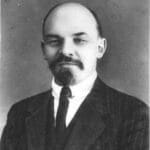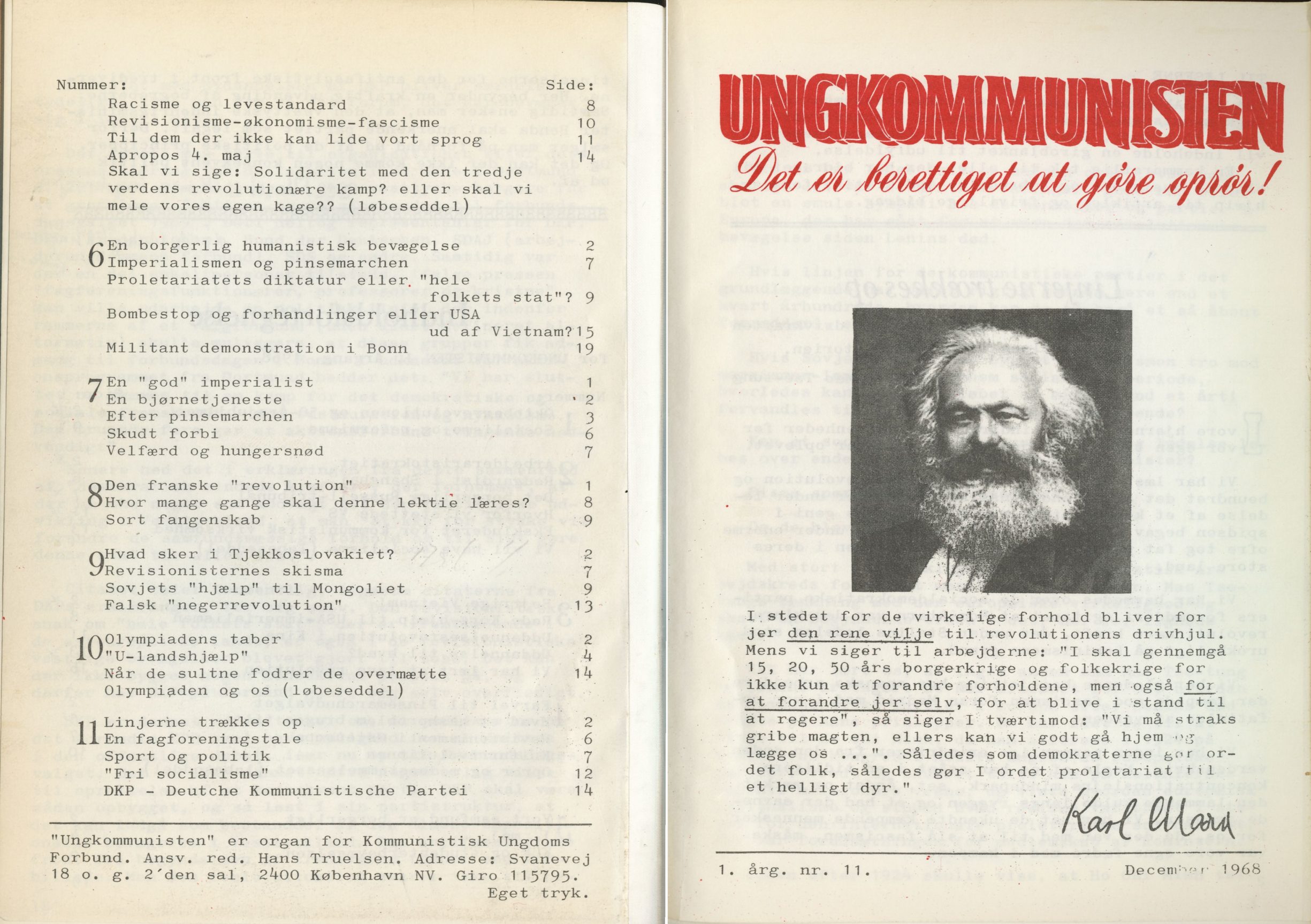About the text:
From: V.I. Lenin: On Imperialism and Opportunism, Futura 1974, 103 p., pp. 23-25.
(Extract)
Written July-November 1914.
Published in “Granat Encyclopedia”,
7th edition, vol. 28.
(…)
The fundamental task of proletarian tactics was defined by Marx in strict conformity with all the postulates of his materialist-dialectical Weltanschauung. Only an objective consideration of the sum total of the relations between absolutely all the classes in a given society, and consequently a consideration of the objective stage of development reached by that society and of the relations between it and other societies, can serve as a basis for the correct tactics of an advanced class. At the same time, all classes and all countries are regarded, not statically, but dynamically, i.e., not in a state of immobility, but in motion (whose laws are determined by the economic conditions of existence of each class). Motion, in its turn, is regarded from the standpoint, not only of the past, but also of the future, and that not in the vulgar sense it is understood in by the “evolutionists”, who see only slow changes, but dialectically: “… in developments of such magnitude twenty years are no more than a day,” Marx wrote to Engels, “though later on there may come days in which twenty years are embodied”. [2] At each stage of development, at each moment, proletarian tactics must take account of this objectively inevitable dialectics of human history, on the one hand, utilising the periods of political stagnation or of sluggish, so-called “peaceful” development in order to develop the class-consciousness, strength and militancy of the advanced class, and, on the other hand, directing all the work of this utilisation towards the “ultimate aim” of that class’s advance, towards creating in it the ability to find practical solutions for great tasks in the great days, in which “twenty years are embodied”. Two of Marx’s arguments are of special importance in this connection: one of these is contained in The Poverty of Philosophy and concerns the economic struggle and economic organisations of the proletariat; the other is contained in the Communist Manifesto and concerns the political tasks of the proletariat. The former runs as follows: “Large-scale industry concentrates in one place a crowd of people unknown to one another. Competition divides their interests. But the maintenance of wages, this common interest which they have against their boss, unites them in a common thought of resistance – combination…. Combinations, at first isolated, constitute themselves into groups … and in face of always united capital, the maintenance of the association becomes more necessary to them (i.e., the workers) than that of wages. … In this struggle – a veritable war – all the elements necessary for a coming battle unite and develop. Once it has reached this point, association takes on a political character.” Here we have the programme and tactics of the economic struggle and of the trade union movement for several decades to come, for all the lengthy period in which the proletariat will prepare its forces for the “coming battle”. All this should be compared with numerous references by Marx and Engels to the example of the British labour movement, showing how industrial “prosperity” leads to attempts “to buy the proletariat” [3], to divert them from the struggle; how this prosperity in general “demoralises the workers” [4]; how the British proletariat becomes “bourgeoisified” – “this most bourgeois of all nations is apparently aiming ultimately at the possession of a bourgeois aristocracy and a bourgeois proletariat alongside the bourgeoisie” [5]; how its “revolutionary energy” oozes away [6]; how it will be necessary to wait a more or less lengthy space of time before “the British workers will free themselves from their apparent bourgeois infection” [7]; how the British labour movement “lacks the mettle of the Chartists” [8]; how the British workers’ leaders are becoming a type midway between “a radical bourgeois and a worker”; how, owing to Britain’s monopoly, and as long as that monopoly lasts, “the British workingman will not budge”. The tactics of the economic struggle, in connection with the general course (and outcome) of the working-class movement, are considered here from a remarkably broad, comprehensive, dialectical, and genuinely revolutionary standpoint.
(…)
LCW vol. 21, pp. 75-76.
The full text can be found online on Marxist Internet Archive:
https://www.marxists.org/archive/lenin/works/1914/granat/index.htm
[2] See p. 140 in “Marx & Engels: Selected Correspondence”, Moscow,”1965.
[3] Marx/Engels: Werke, Berlin, vol. 27, p. 178.
[4] op.cit. vol. 29, p. 231.
[5] “Marx and Engels: On Colonies, Industrial Monopoly and Working Class Movement”, Futura, 1972, p. 27.
[6] Marx/Engels: Werke, Berlin, vol. 30, p. 338.
[7] “Marx & Engels: Selected Correspondence”, Moscow, 1965, p. 140.
[8] Marx/Engels: Werke, Berlin, vol. 31, p. 198.




























